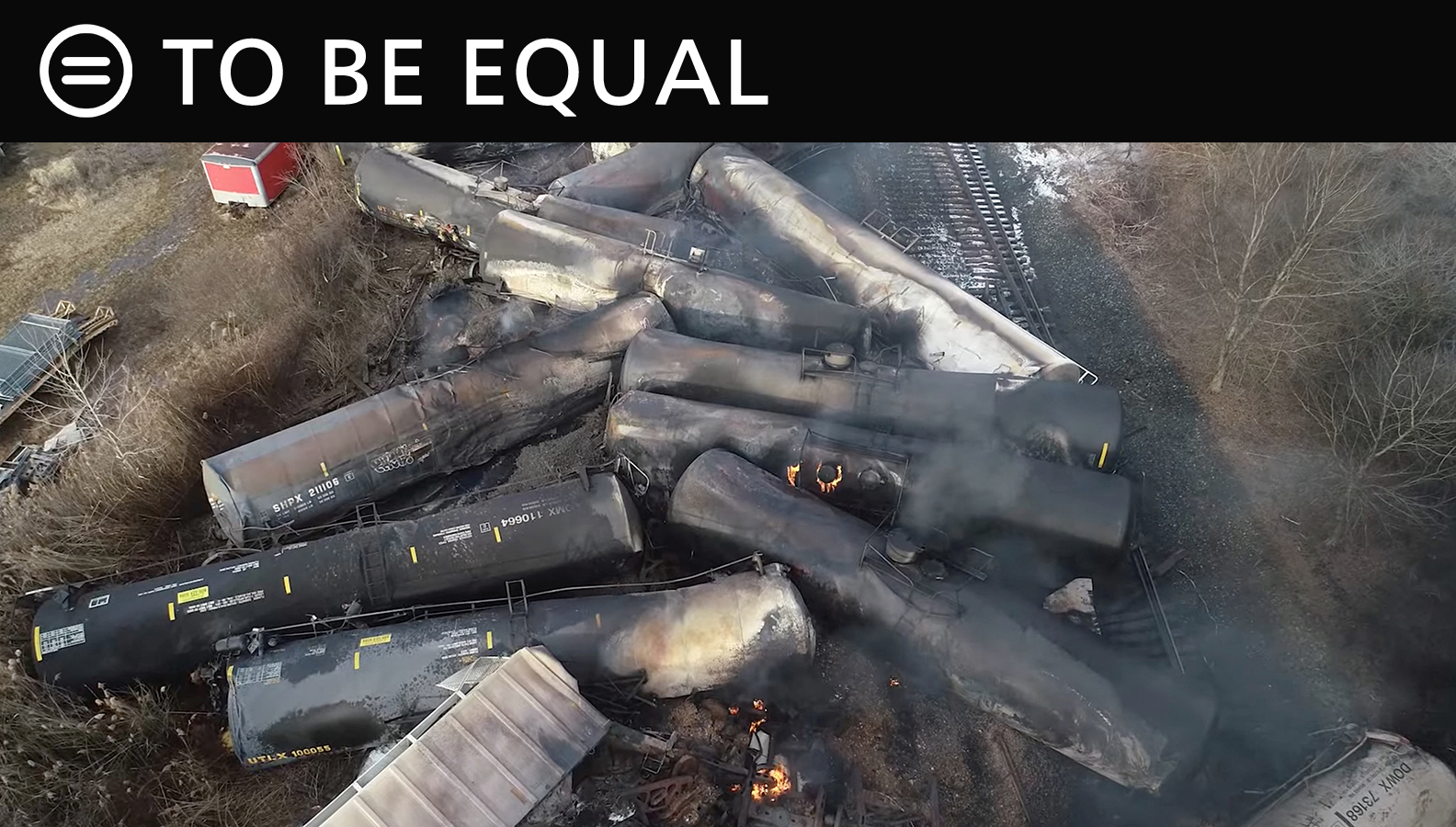Deregulation Leads To Crashed Trains And Crashed Economies

Marc H. Morial
President and CEO
National Urban League
“Powerful lobbying by regulated industries for decades have delayed, weakened, or rolled back public safety and environmental protection regulations that have taken a toll on our communities, health, and environment. But the lesson bears repeating: Government regulations save lives and boost economic innovation – if elected officials stand up for them.” -- Margo Oge
The collapse of Silicon Valley Bank last week didn’t unleash hundreds of thousands of pounds of toxic chemicals into the water, soil, and air, the way the freight train derailment in East Palestine, Ohio, did last month.
But the two events have one important element in common: Deregulation.
Before Silicon Valley Bank collapsed last week, the image most Americans associated with the term “bank run” was the scene in It’s a Wonderful Life when George Bailey doles out his honeymoon fund to the panicked clients of Bailey Brothers Building and Loan.
Bank runs – triggered by the losses banks incurred through speculation in stocks – caused much of the economic damage of the Great Depression. To stabilize and restore public confidence in the nation’s banks, Congress enacted the Glass–Steagall Act, which insured deposits and prohibited commercial banks from speculative investments.
The Glass-Steagall Act worked so well for nearly seven decades that Congress decided to gut it in 1999, allowing banks to originate fraudulent loans and sell them to their customers as securities. The financial collapse of 2008, also known as the Great Recession, was the result.
Once again, Congress stepped in to restore stability to the financial services industry, enacting the Dodd–Frank Wall Street Reform and Consumer Protection Act. And once again, Congress ignored the lessons of history and gutted key provisions of the law in 2018, exempting banks like SVB from regulations and requirements that could have prevented its collapse.
It’s not hard to see the parallels between SVB’s collapse and the East Palestine train derailment. While we cannot point to the repeal of a specific regulation that could have prevented the disaster, it’s clear that underregulation was a major fact. According to Railroad Workers United, the derailed train was excessively long and heavy and the cars were arranged in a dangerous fashion. The train was not inspected properly “due to car inspectors being laid-off” and “time allowed per car inspection being dramatically reduced by the industry.”
History is rife with examples of lax regulation resulting in calamity – for the economy, for the environment, and for the health and lives of workers. The 1911 Triangle Shirtwaist Factory fire, which took the lives of 146 garment workers, inspired dozens of regulations improving fire safety, factory inspection, and sanitation and employment policies for women and children, and other labor protections.
But even child labor protections are not safe. Arkansas last week weakened its law to allow children as young as 14 to work up to 28 hours per week, even without the permission of their parents. At least 10 states have introduced or passed laws rolling back child labor protections in the past two years.
Let us hope it does not take another deadly tragedy to persuade the nation of the error of its ways.
###
11TBE 3/16/23 ▪ 80 Pine Street ▪ New York, NY 10005 ▪ (212) 558-5300
Connect with the National Urban League
Facebook: https://www.facebook.com/NatUrbanLeague
Twitter: https://twitter.com/naturbanleague
Instagram: https://www.instagram.com/naturbanleague
Website: https://www.NUL.org
Newsletter: http://bit.ly/SubscribeNUL
YouTube: http://bit.ly/YTSubNUL

